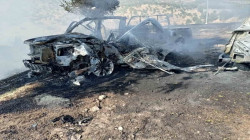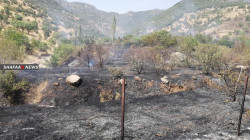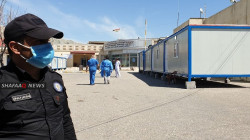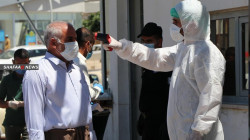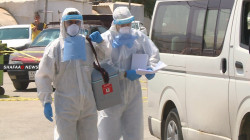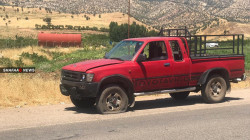"The K.D.P.'s 14th conference".. from a house in Baghdad to the adventures of mountains and power
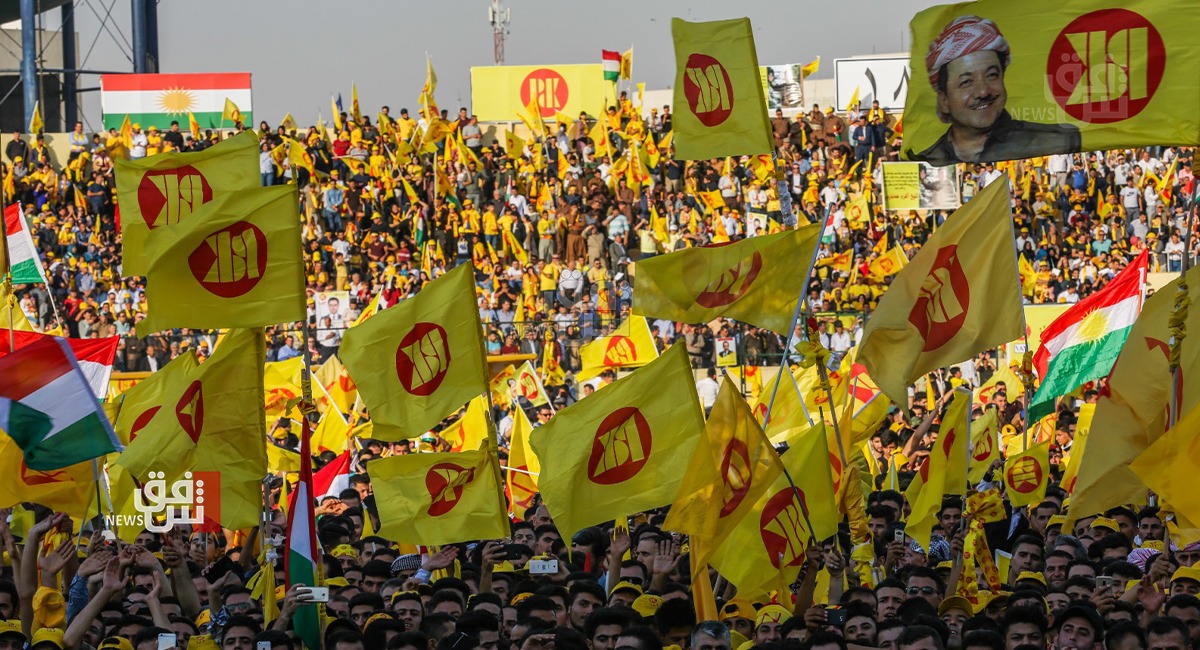
Shafaq News / As the 14th Conference of the Kurdistan Democratic Party (K.D.P.) approaches, attention is turning to the Kurdistan Region, which is going through an important stage at a time when the world is pulsating with transformations, crises, and challenges.
Given the many current realities, the K.D.P. conference in Duhok will be more concerned with the transformation of the party that emerged in 1946, after the end of World War II, into a key player in Iraq's balancing act, and its association with regional and international relations that it has used over the past decades to fortify and protect Kurdish interests.
From the era of its historical founder and leader, Mullah Mustafa Barzani, to the current leader Masoud Barzani, the K.D.P. has fought through countless storms, challenges, crises, wars, and conflicts, making it a pioneer in political and militant life, particularly after adopting the slogan "Renewal - Justice - Coexistence."
According to observers, the party can summarize its overall accomplishments by saying that it has contributed to making the dream of millions of Kurds a reality on the ground, despite the dark circumstances and difficulties.
After being postponed twice due to two unexpected threats, namely ISIS and the COVID-19 pandemic, 800 party delegates are meeting for the first time since 2010 to discuss challenges and unite visions for the future.
Last August, the K.D.P. held elections for its members, who are now participating in the Duhok conference. Approximately 600,000 of those eligible to vote participated in the selection of the 800 delegates, 25% of whom were women.
The conference will face the challenge of staying true to its slogan "Renewal - Justice - Coexistence" despite the passage of 76 years; a period that appears to be long but also demonstrates the vitality of the party, which, for example, obtained 31 parliamentary seats in the most recent parliamentary elections in October 2021, reinforcing its image as the largest Kurdish party at the regional and federal levels.
The party was originally known as the "Kurdistan Democratic Party-Iraq," but the current name was adopted at the party's third congress in Kirkuk in 1953.
Since the days of Mullah Mustafa Barzani, who fought in the early stages of the Kurdish struggle, the challenges have been more than just the names by engaging in the ambition of the "Democratic Republic of Kurdistan-Mahabad" in 1945 and then dismissing it, the stage of Soviet exile, the establishment of the Party on August 16, 1946, the temporary rapprochement with the rule of President Abdul Karim Qassem later in 1958, and then Baghdad's decision to choose the military option against Mullah Mustafa Barzani.
The K.D.P. had to deal with changing realities once more and actively participate in the famous Kurdish initiative in April 1946, in order to lay the groundwork for reconciliation and rapprochement with the rule of the second Iraqi President Abdul Salam Arif, and to try to guarantee Kurds' cultural and political rights. But unfortunately, those efforts were futile until the 1970 agreement granted autonomy to the Kurds.
The K.D.P. had previously held several conferences, the first of which was held on August 16, 1946, in a house in Baghdad's Bab al-Sheikh area, the second in March 1951, the third in Kirkuk in January 1953, and the fourth in Baghdad in 1959, under the supervision of Mullah Mustafa Barzani, who had returned from self-imposed exile in the Soviet Union.
Following the party's fifth conference in Baghdad in May 1960, it is believed that a few months later, in November 1960, Abdul Karim Qassem attempted to remove Mustafa Barzani from the party leadership by pressing for his exclusion from the party, but the K.D.P. faced and rejected it.
The Sixth Conference was held in Qaladize in July 1964, followed by the Seventh Conference in Gelale, Kurdistan Region, in 1966, and the Eighth Conference in Nawperdan in 1970, followed by an assassination attempt against the party's leader, Mullah Mustafa Barzani, in 1971.
The autonomy agreement did not last long after that year, as it was thwarted by the terms of the so-called "Algiers Agreement" of 1974 between Iran's Shah and the then Iraqi Vice President Saddam Hussein, who ironically was Iraq's representative in the former autonomy agreement. The party was once again challenged by Baghdad's reneging and had no choice but to return to armed conflict.
This was one of the most serious challenges in the party's march, followed by the death of its historical leader, Mullah Mustafa Barzani, on March 1, 1979, in a hospital in the U.S. where he received treatment. On October 4, 1979, amid feelings of heavy loss, the party's ninth conference was held in the Markur region of Iranian Kurdistan, where Masoud Barzani was chosen to lead the party at this pivotal moment. A confidence that was renewed in the tenth conference, also held in the Merkur region in 1989, saw Nechirvan Barzani's rise in party work, to become a member of the Party's Politburo.
This was only a year after the end of the Iraqi-Iranian war, which had ravaged Kurdish interests, whether through chemical genocide against the city of Halabja in March 1988, or through the Anfal campaigns between 1986 and 1989, which killed tens of thousands of Kurds.
The K.D.P. and other Kurdish forces were forced to bear the heavy bloody burdens of those years until history struck a dangerous blow a few months later, specifically on August 2, 1990, when Saddam Hussein invaded Kuwait, and regional and international balances were hit by a tsunami never seen before, leaving a lasting impact on the Kurds.
Following the end of the war to liberate Kuwait from Saddam Hussein's grip, the U.S., the U.K., and France imposed an air embargo to protect Kurds in the north and Shiites in the south from Saddam Hussein's air retaliation attacks, which strengthened the Kurdish movement for autonomy, one of the historically K.D.P. demands, by organizing local elections and establishing a representative parliament, which practically shaped the establishment of the Kurdistan Region.
In light of these major changes, as well as the spring uprising of the Kurdish people, the K.D.P. held its 11th conference in Erbil in 1993, renewing trust in its leader Masoud Barzani, whom the party had delegated since 1979, to carry the trust until the establishment of the Kurdistan Region. Trust in Barzani was reaffirmed at the party's 12th conference, also held in Erbil in 1999.
Another earthquake impacted the march of the K.D.P., which occurred in 2003 with the start of the war to topple Saddam Hussein's regime and the subsequent major internal events, appears to have been one of the reasons for the postponement of the party's 13th conference until 2010 in Erbil. A stage in which the party participated in the multifaceted political process in Baghdad from 2003 until the preparation of a new constitution for Iraq in 2005, including the constitutional, organizational, financial, and military stabilization of the Kurdistan Region, as well as strengthening Kurdish involvement in Baghdad's political process.
The 14th Conference was scheduled to take place in 2014, but the emergence of ISIS and its direct threat to Iraq and the Kurdistan Region diverted attention away from party politics and toward the vast fronts where the K.D.P. actively engaged in efforts to counter, defend, and then liberate, initially relying on its own forces and later taking advantage of its regional and international relations with Washington, Paris, Tehran, London, Ankara, and others, to harness the efforts and provide the fronts with resistance and arms.
The performance of the Party in dealing with this challenge, which threatened the region's existential entity and its various ethnic and religious components, demonstrated that no voice is louder than the battle at the time. The 14th Conference is now taking place in Duhok, and Iraq's elections have ended after the longest political deadlock in nearly 20 years.
Because of the length of time since the last conference, and the number of developments and events that have occurred since then, including the new political détente in Baghdad, many eyes are turning locally, regionally, and internationally to what will take place in the Duhok conference to draw the contours of the next stage, whether in the relationship with Baghdad, the internal affairs of the region, and the regional transformations that are taking place, which are multiple and intertwined, regarding which Masoud Barzani and the deputy head of the party Nechirvan Barzani, have a lot to say.
